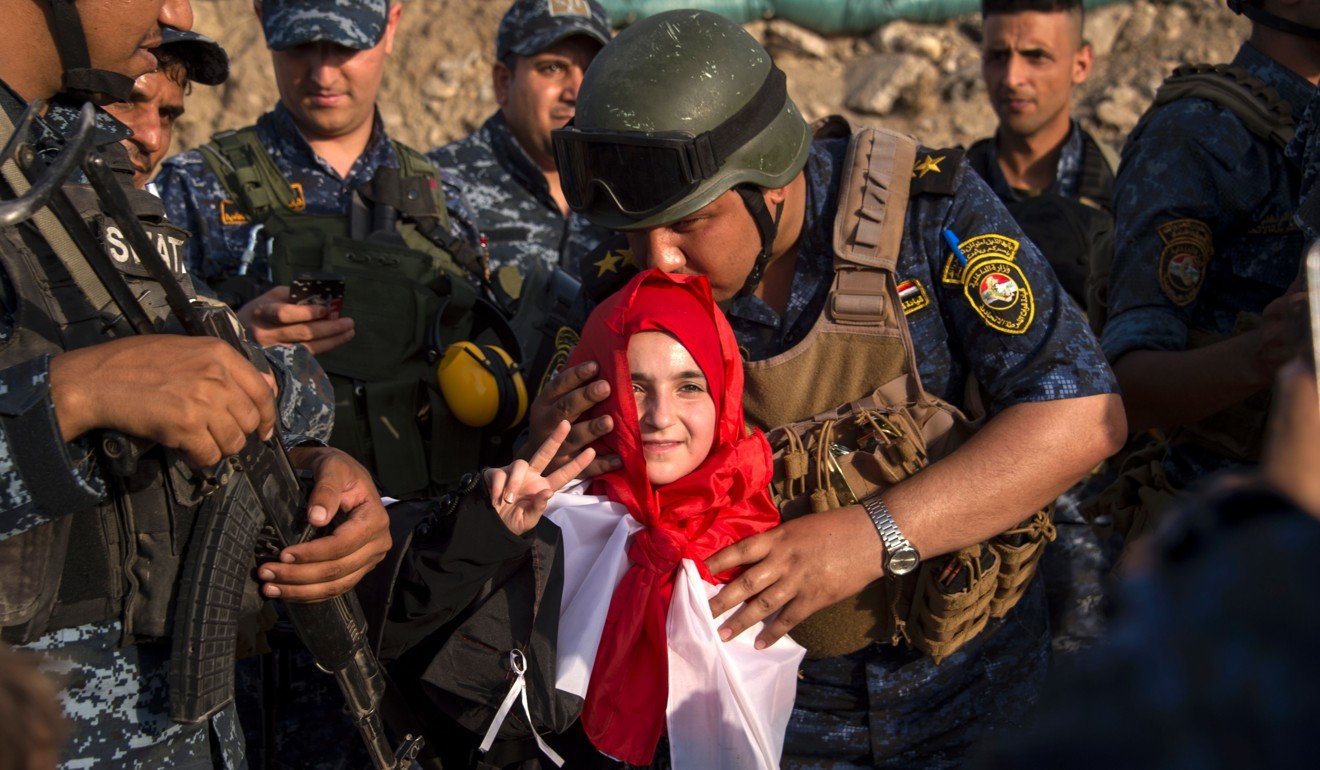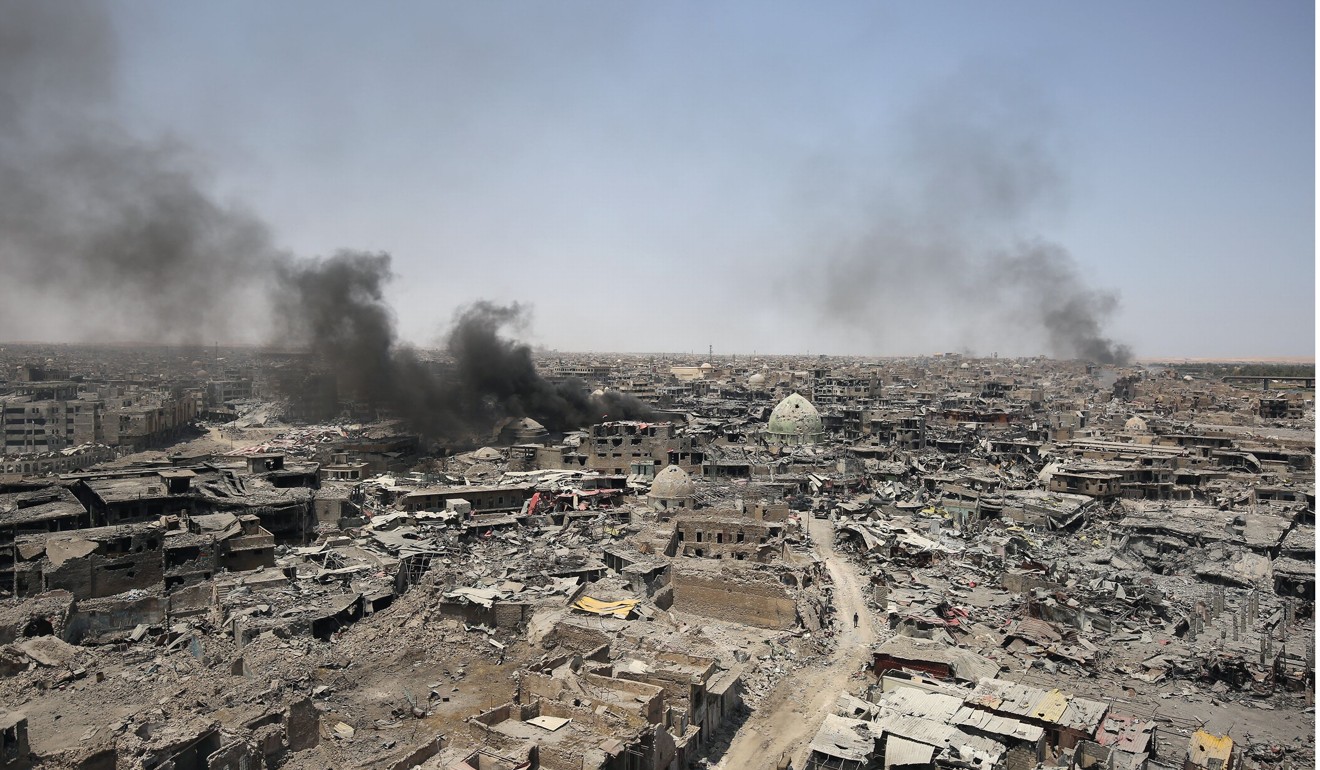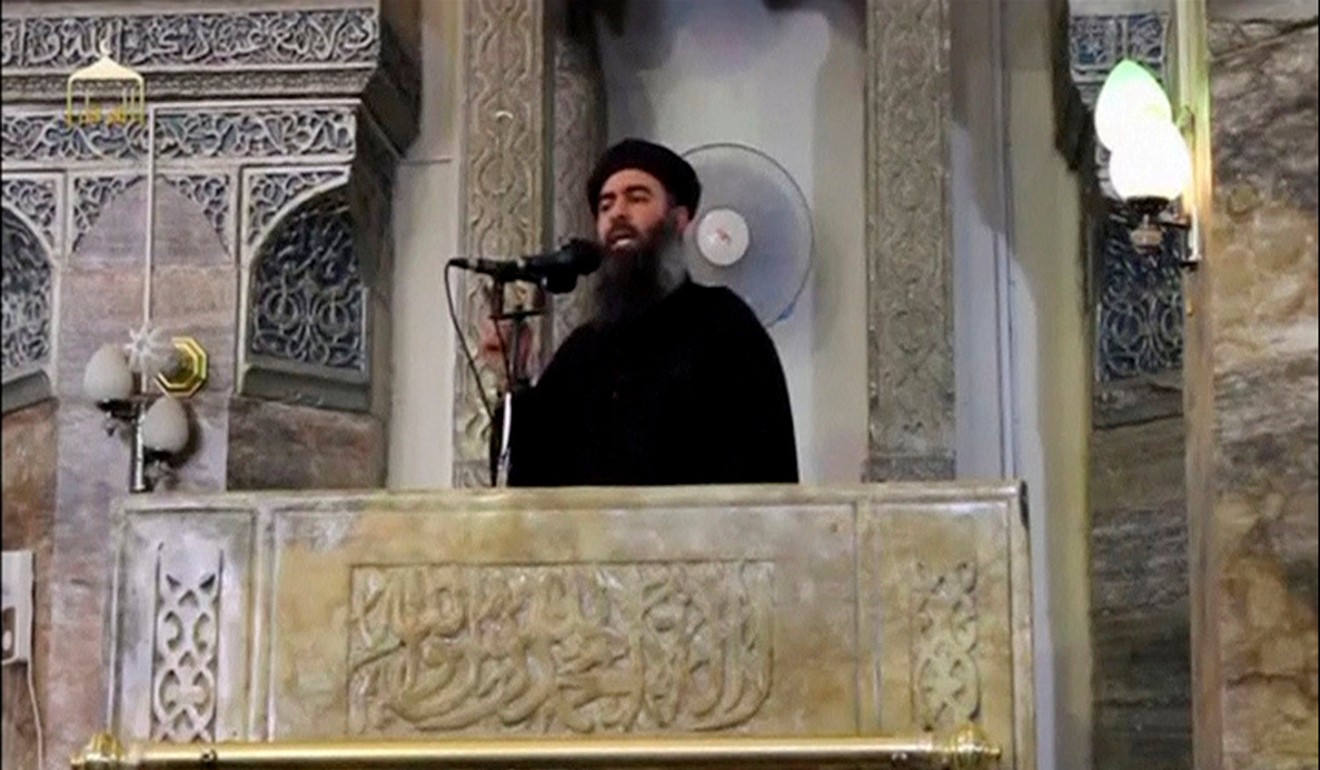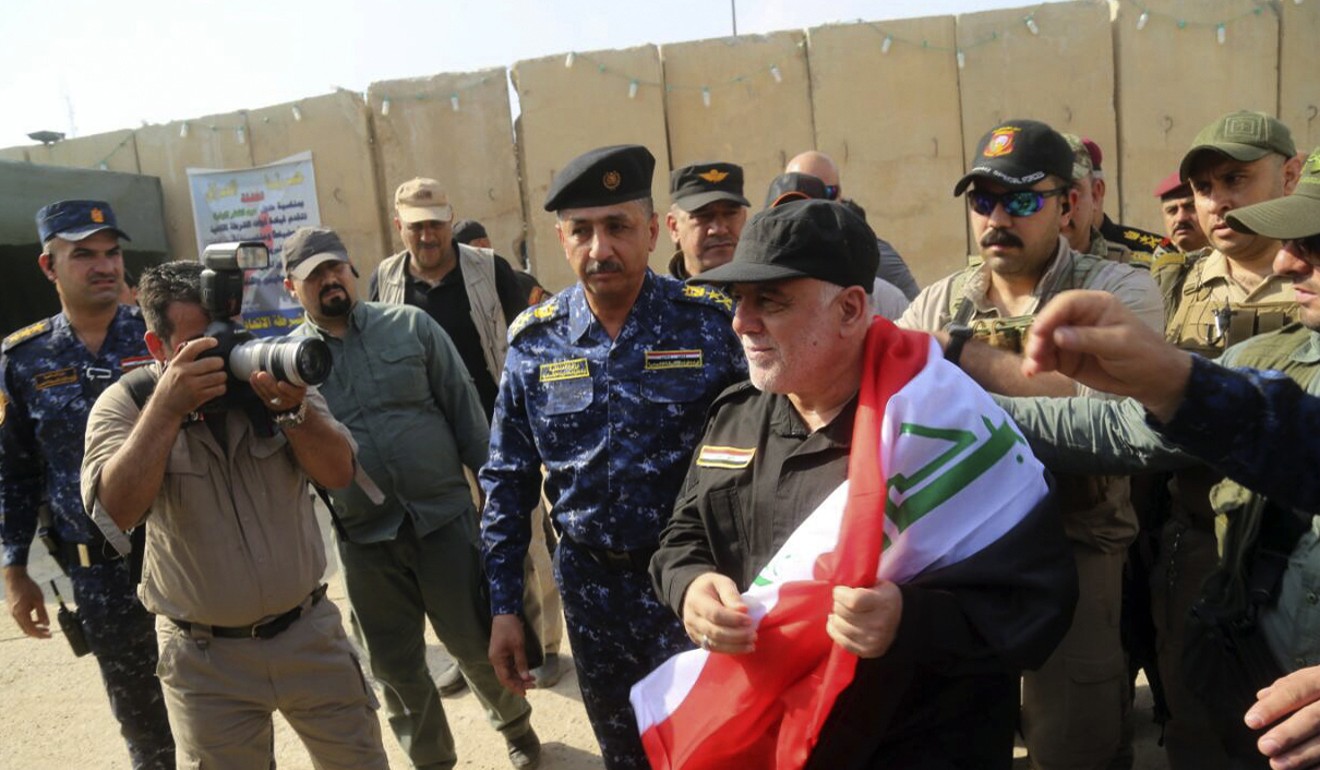
Analysis | Down, not out: Mosul victory is good news, but it’s not the end of Islamic State
Retaking the city marks a major blow against Islamic State, whose leader Abu Bakr al-Baghdadi made his first speech as self-proclaimed caliph from one of Mosul’s mosques in 2014
It is almost exactly three years since Islamic State (IS) leader Abu Bakr al-Baghdadi proclaimed a caliphate from the pulpit of the medieval Great Mosque of al-Nuri in Mosul, following a stunning IS sweep through large areas of Iraq and Syria.
Three years later, Iraq’s second city is mostly back under the control of government forces, IS has been largely confined to the Syrian city of Raqqa and desert areas of western Iraq, and Baghdadi is missing, reported killed.
The al-Nuri mosque, like much of Mosul, is in ruins. Mosul’s residents have paid a steep price. Thousands have been killed or wounded – murdered by the jihadis, blown up in air raids by the US-led anti-IS coalition or killed after being caught in street fighting.

Iraq’s prime minister, Haidar al-Abadi, was quick to claim credit for the city’s liberation, making a visit in person on Sunday.
“We are glad to see life back to normal for civilians in Mosul and all that was a result of the sacrifices of our heroes who amazed the world with their bravery,” Abadi said in a Twitter posting.

Few people outside Iraq and Syria predicted IS’ rise or its victorious advance in 2014. With hindsight, it became clear the group fed on fierce resentment among Iraq’s Sunni Muslim minority at the failure of the Shiite-led Baghdad government to provide equal treatment. Some in Mosul initially welcomed its arrival.
This failure occurred despite repeated outside efforts, principally by the US, to induce Maliki and his backers to allow meaningful power-sharing with the Sunnis and Iraq’s other large minority, the Kurds.
Watch: troops plant Iraqi flag in Mosul
Maliki’s allies in Iran’s Shiite-led regime were also to blame. Having been inadvertently handed an un-dreamed-of degree of influence in post-invasion Iraq by George W. Bush, Tehran was not going to surrender it easily.

To some degree, the imperative of defeating IS united Iraq’s disparate forces. Now, the temporarily submerged fault lines between Arabs and Kurds, Sunnis and Shiites, may re-emerge.
Mosul has had a very rough time. But it remains a multi-ethnic city that will not necessarily welcome resumed direct rule by an unpopular government in Baghdad.
The Kurds’ part in success against IS, achieved in alliance with US special forces and the western coalition, will further boost the local and international profile of the quasi-autonomous Kurdish regional government in northern Iraq. The KRG plans to hold an independence referendum in September, which could prospectively lead to Iraq’s partition.

There is also growing momentum behind greater cooperation with Syrian Kurdish groups opposed to rule from Damascus.
The US now faces some complex issues. The vexed question of how long US forces remain in Iraq, and whether they will indefinitely prop up Abadi’s government, will return to the fore.
The Pentagon does not appear to anticipate an early exit. It has requested a budget of US$1.27 billion in 2018 to continue to support Iraqi forces. But if there is a long-term US strategy it is a well-kept secret.
Politically speaking, the Trump administration will doubtless crow about Mosul and see in it a harbinger of imminent success in Raqqa. Donald Trump may even claim he has fulfilled his campaign pledge to “eliminate” IS.
That would be decidedly premature. The jihadis may be losing their territorial bases, but their warped ideology has not been vanquished. The group will continue to propagate its hateful ideas online. Its fighters will probably continue to wage an insurgent campaign. And they may now be additionally motivated to take the fight to the “enemy”, meaning a possible future rise in attacks on European soil. There is plenty of anecdotal evidence that battle-hardened fighters are returning to their European countries of origin.
The news from Mosul is good. But IS is down, not out.

